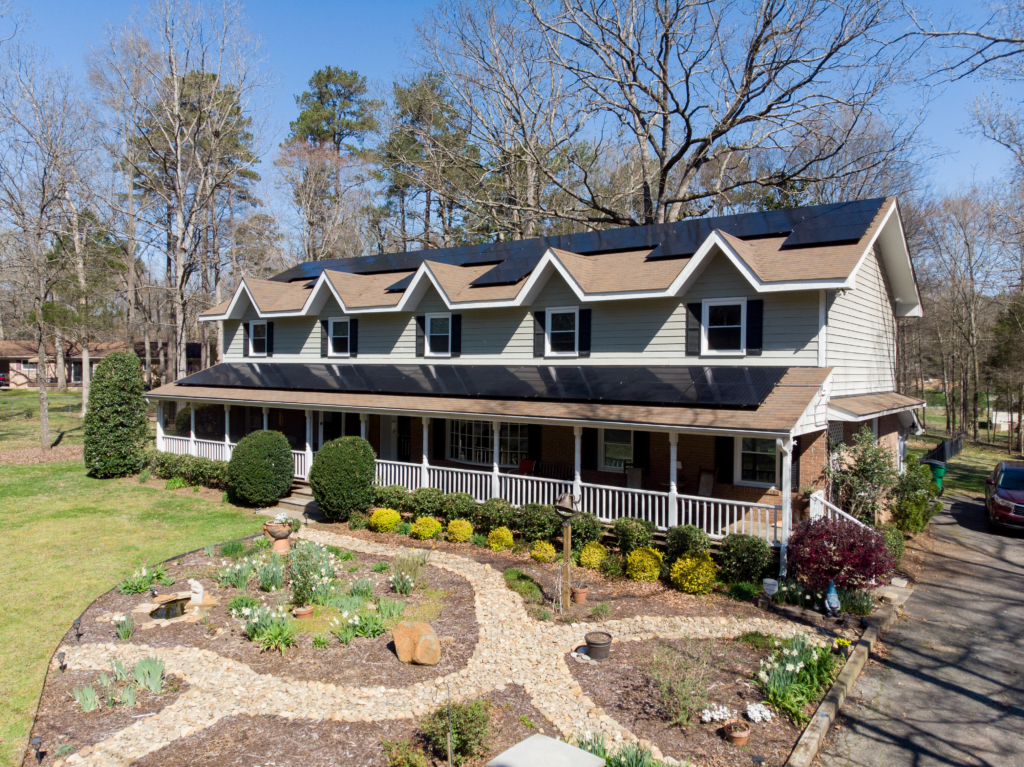LeafSpring School Goes Solar
Solar Profile: LeafSpring School
The Opportunity
In 2017, LeafSpring School, a Charlotte-area preschool known for innovative learning, was thinking big about facility improvements. Renu Energy Solutions proposed a 40-kiloWatt photovoltaic solar system for the south roof. The arrays would be fully visible from the main outdoor play area, and the leadership team at LeafSpring School, formerly Rainbow Station preschool was thrilled from the beginning to incorporate solar power into their students’ experience. Solar would also deeply reduce the energy from the grid that the school uses to power the building daily.
The Commitment
LeafSpring School owner Parks Hunter said the solar energy system would be an extension of the school’s core values, saying, “We are constantly looking to set the standard in all aspects of early childhood education. “Going solar is an example of LeafSpring School continuing to raise the bar and be the leader in early childhood education.”
The Results
LeafSpring School demonstrates leadership in sustainability through its solar project. By investing in solar the facility is contributing to cleaner air for a healthier world. The system is estimated to save $4,000 in electricity costs in the first year by producing over 55,000 kiloWatt-hours of clean power.
![]()

Frequently Asked Questions About Something:
How exactly does going solar and a solar system itself work?
How many solar panels do I need for my home?
Roof-size/available space: When we look at the size of your roof and the space available, we gather data that tell us the maximum number of solar panels your home or site can hold and we even consider shading. We use a software “Suneye” which takes a 360 picture of your roof and we use this photo to determine if your home is a good candidate for solar.
Energy Usage: When we determine energy usage we look at your past electrical bills from over the course of a year to make sure your system isn’t too big or too small.
Your Budget: We take your budget seriously and most importantly, we want you to be satisfied with our services. We take your feedback on how much you want to spend so that we can size your system appropriately.
What is solar net-metering?
Does Duke Energy offer net-metering?
Curious about the cost of a home solar system?
Ready to Own Your Own Energy?
Speak to Us Today!
